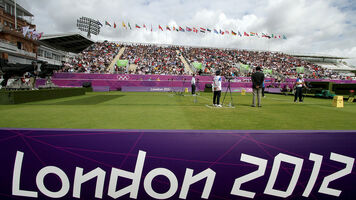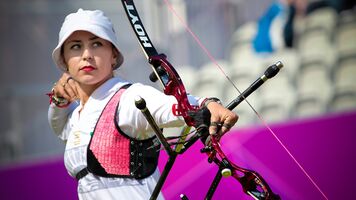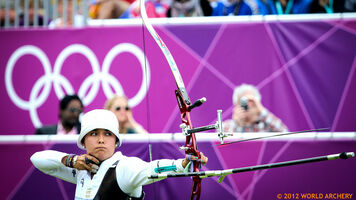An Olympic champion in the coaching box
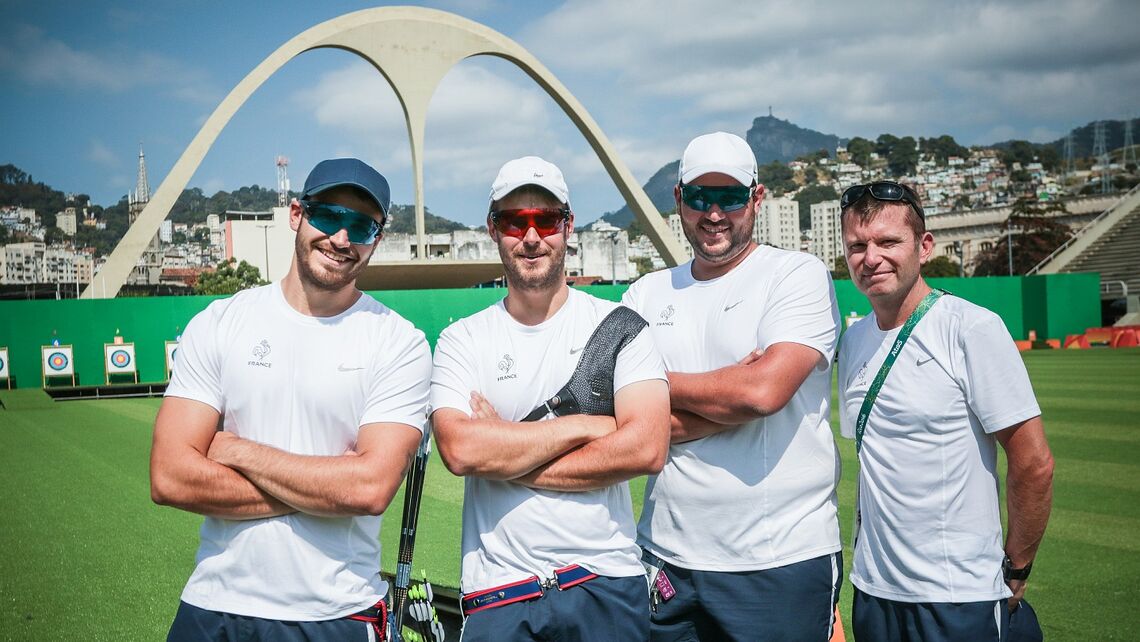
English translation by Christian Deligant.
Aged 44, he hung his bow after missing the appointment with London 2012, but for Rio 2016 he took a new challenge. He is here as the adviser of the French team, the ‘big brother’ of the three athletes that have almost the same age he had in 1992.
It was 1983 when Sebastien Flute discovered archery, aged 11, in Brest, the main harbour in Brittany, the north-west region of France.
He started his international career in 1988 with the junior team. Four years later, reigning indoor world champion and target European champion, he wears the French colours at the Olympic Games of Barcelona, raising to the highest step on the individual podium
He also participated in Atlanta 1996 and Sidney 2000. In Australia he finishes eighth individually and decided to retire from archery after these Games.
Between 2000 and 2003, Sebastien Flute made a complete seizure in order to fully concentrate his focus on his new situation. He came back in archery a little step after the other, especially after the French Archery Federation (FFTA), which was organising the 2003 Indoor World Championships in Nimes, asked him to be their broadcasting consultant.
His full return in archery happened in 2004, after working for three years for FFTA. At the same time, he developed in 2005 his own archery brand – SF Archery – in partnership with the Korean archery maker Win&Win Archery.
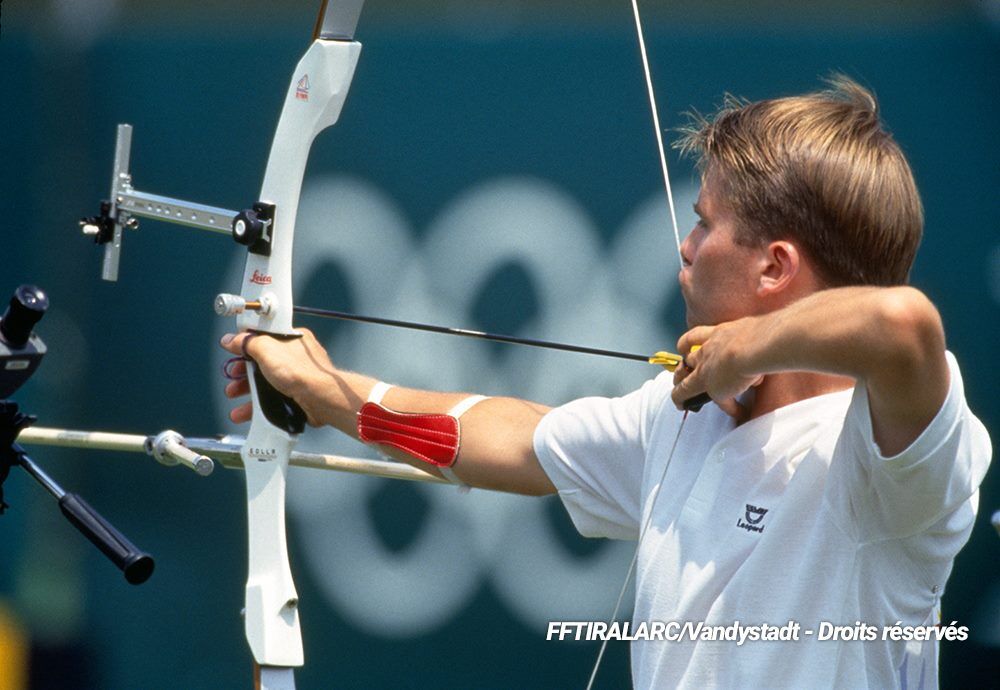
“It allowed me to see archery from a different point of view,” he said.
Sebastien has also been elected as high level athlete in the French anti-doping agency and in 2004 has been entitled Knight of the Legion of Honour.
After being commentator for a French broadcaster at the Beijing Games, competition hooked him again.
In 2009, 17 years after his Olympic title, the French champion comes back in competitions with a single goal: shooting at the London 2012 Olympics. His first appearance on his road to London has been the World Cup leg in Shanghai, September 2010.
“It was then that I realised how much the competition adrenaline was missing me, and how much I missed that sensation since I stopped in 2000. And on top of it, I was also missing archery in itself,” was Sebastien Flute explaining at that time.
But he lost his bet, he didn’t qualify for the London Olympics.
In 2016, he is again on the field, but in the backstage. He joined the National Team staff after the Copenhagen 2015 World Championships, that he attended as a simple spectator and above all as a supporter.
“By experience, I know it is always complicated. There are many teams, a lot of pressure and a lot to lose”, he told from Rio.
When he arrived in Copenhagen, qualifications were done and the French team had not got a single slot for the Olympic Games.
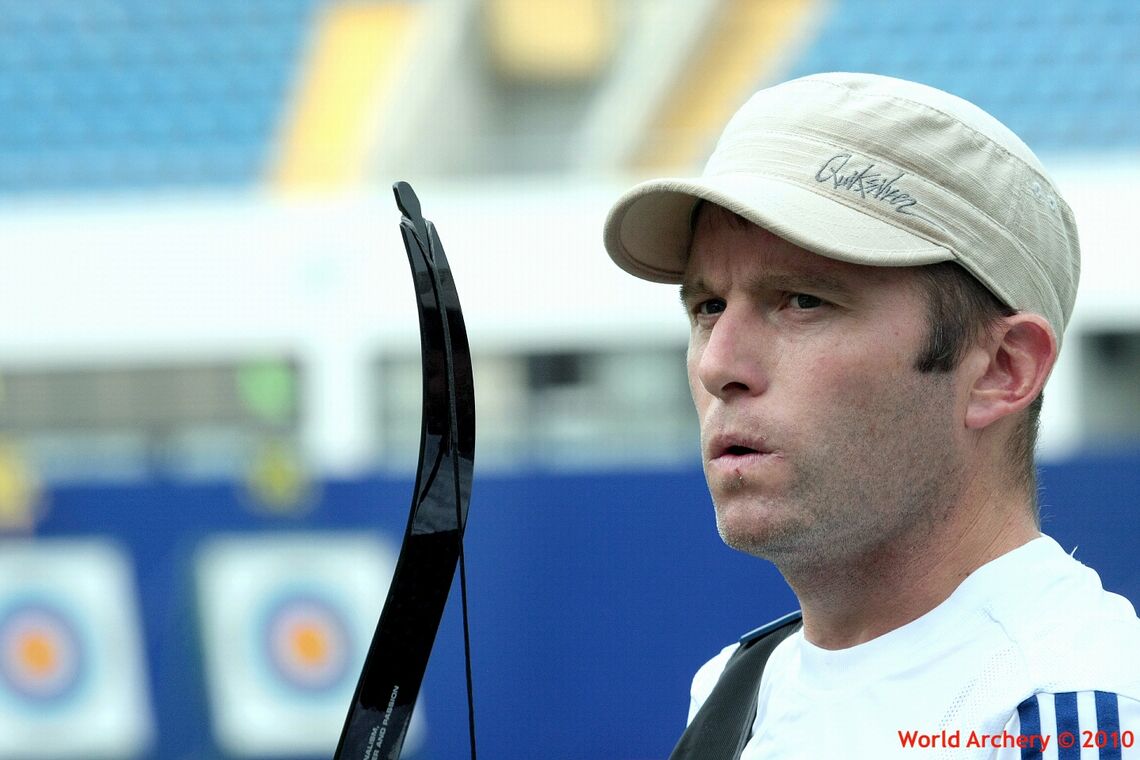
“It was crisis, so we stayed there a little longer, unfortunately we know the result: no quota and no results at the World Championships.”
FFTA then asked him if he was interested in joining the team for a last chance mission.
“Of course I accepted, as I really wanted to help and it was hurting to see the athletes struggling so much although they had the potential. It was a real challenge.”
And so the ‘big brother’ of the team was always there in every stage and competition since November, not really as a coach but more as a supervisor in charge of helping athletes and surrounding staff to work better together.
Since then, he tries sharing his own experiences, talks with them about what they are thinking and fearing, helping them find solutions.
In June, in Antalya, at the last chance competition, finally French archery made it and took an Olympic quota for the men’s team.
Asked what the bonus value of a former Olympic champion could be in a peculiar competition as in the Games, Sebastien explains that the point is to teach the athletes to anticipate whatever they could discover, how things will happen, and generally speaking all what is different from what they are facing usually.
“We talked a lot about the greatness of the event, the dimensions of the Olympic Village, the omnipresence of the media, so that they would Compared to his time, he said, things evolved a lot, as there are a lot more media as usual, even if the athletes are nowadays used to big arenas for the finals.
“But here it's the Games!”
After 1992, 1996 and 2000 as athlete, Sebastien Flute lived all the other Olympics as a consultant, so he could see the evolution.
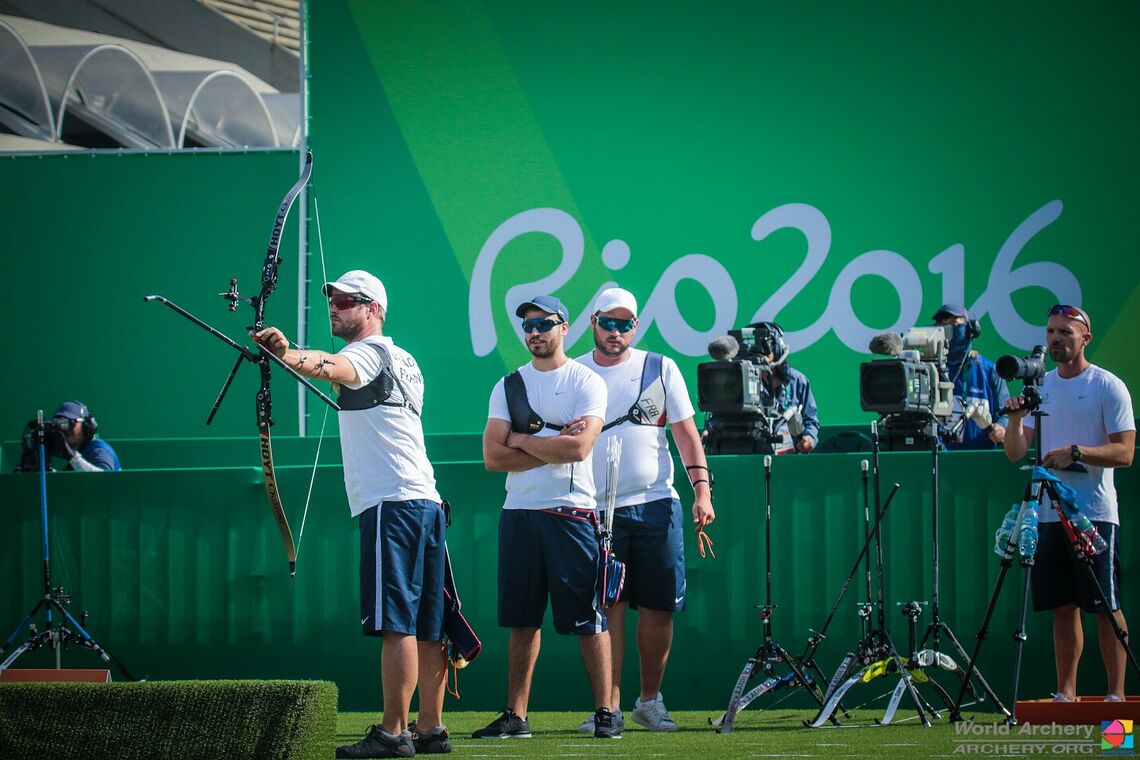
Not only did the field of play has changed into a true arena, but there are also more media. The whole environment is more pro-oriented than in his times.
The expectations are the same but we feel them more deeply, because cheering and supporters arrive through socials too. And the more supporters the more expectations...
“I remember, when I won I found a pile of faxes on my bed,” he said bemused. “Now, congratulations and cheering arrive directly on their phones.”
Although he did not compete in the last Olympics, he is not feeling out of the game: “I admit things have changed a lot compared to my times, but the message I try to send them is that it is basically a target at 70 metres and what they need to do is shoot their arrows in the middle as usual.”
The 1992 Olympic Champion has seen the Olympic formula change from 10 arrows matches to 18, then 12. Even if not completely convinced by the set system, he admits he took advantages of it when he returned to competitions and that it actually helps his archers today.
“The set formula opens the match table a lot,” he said. “You can even miss an arrow completely but still win the match.”
Flute always considered archery both a precision and a consistency sport. He thinks that at this moment it is the precision side of archery that is under the spotlights, and the consistency has been a little blurred out by the set system.
His opinion is that it is important that the favourite archers win on a regular basis, as this is what forms the bedrock of a discipline and gives references for others to follow and to rely on to start working.
On the another side, this system is good as it tends to disinhibit athletes. Moreover, when a match is scrappy and the levels are too far apart, “you don’t drag your misery too long on the field.”
Athlete, consultant, coach, which preference?
“Athlete of course!” is Flute’s immediate answer. “You are the worker, you have the bow in your hand, you are the one achieving the result.”
He finds the role of consultant interesting as the athlete has the opportunity to share his experiences and to unveil his discipline to the journalists. Seb, as he is being nicknamed, “feasted himself” doing commenting his last Games on TV.
And he likes the coach status for the daily human contact and performance.
“Actually, it is almost impossible to compare these roles and I really wore them all. To be honest I closed the loop and to be sure I even restarted to quit all doubts.”
After his mission with the French team at Rio Games is over he does not know if he will keep on following them. It will probably depend on the outcome of these Games.
Coaching abroad is not really into his plans, as he already travelled a lot. “I have nothing against those deciding to coach abroad, there are for sure exciting adventures out there, but I’m too attached to the flag.”
Besides, he is also involved in a number of other activities, as the Dakar Rally since its last African Edition in 2007 and all the following in South America, where he started as a member of field operations and is since last year in the race headquarter.
But he is also into the renown cycling Tour de France, and of course has his archery brand to manage.
Seb would also like to a helicopter pilot and is actually making the licence, something that he is dreaming of since a long time ago.
The individual title of Sebastien Flute at Barcelona 1992 Games remains as the highest French Archery Olympic triumph of the modern era.
Flute’s gold medal had a tremendous influence on his home country’s sport, as archery in France saw a +20% increase of members the following year. Between Barcelona 1992 and Rio 2016 the archers in France more than doubled.
Up today, he is the last left handed archer to be on an Olympic podium!





